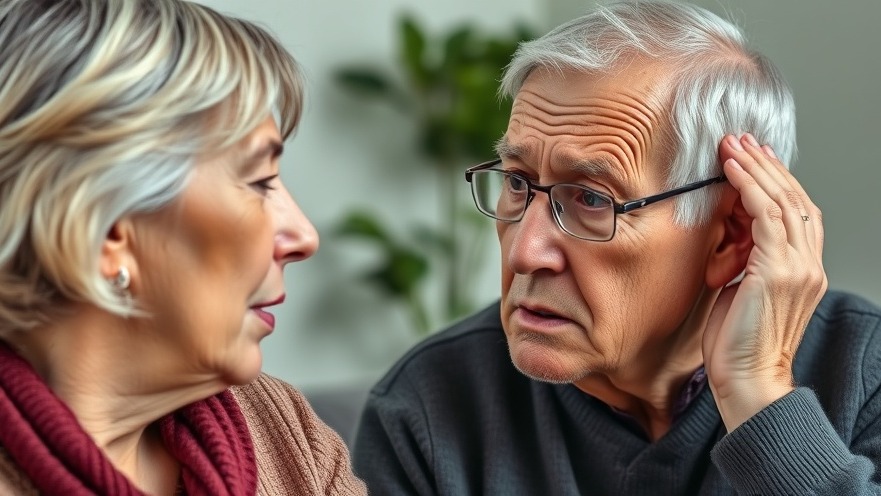
Understanding the Importance of Hearing Health at Any Age
When we consider our health, we often think of regular checkups, but how often do we think about our hearing? Contrary to popular belief, hearing health is not a concern solely for the elderly. Individuals as young as their twenties should be proactive about their auditory well-being. Research consistently demonstrates that early engagement in hearing care can lead to a better quality of life later on.
The Risks Associated with Untreated Hearing Loss
Untreated hearing loss is linked to an array of health complications, including cognitive decline and increased risks of diabetes and falls. Moreover, social isolation often accompanies hearing difficulties. Individuals may choose to withdraw from conversations rather than struggle to follow along, which can lead to mental health challenges like depression. Ensuring that we and our loved ones prioritize hearing health is essential for overall wellness and quality of life.
A Culture of Noise: The Modern Challenges to Hearing
Today's younger generations are exposed to unprecedented noise levels. Whether it's the constant hum of city life, music from earphones, or the sounds of power tools, understanding the risks of noise-induced hearing loss (NIHL) is crucial. Parents and caregivers should educate younger individuals about the various sound environments they encounter daily and the potential long-term impacts on their hearing health.
Creating Healthy Hearing Habits
Protecting your hearing begins with small, conscious choices made on a daily basis. One effective approach is to wear earplugs in loud environments, like concerts or even certain restaurants, which can amplify sound significantly. Choosing quieter venues, or opting for headphones with built-in volume limiters can safeguard hearing health. It’s best to keep the music at a reasonable volume and limit the duration of exposure.
Addressing Hearing Loss: When to Seek Help
Despite the risks, many individuals postpone seeking treatment for hearing loss. In fact, studies indicate that the average person with hearing loss waits over seven years before getting help. This delay can stem from misconceptions about hearing loss being an inevitable part of aging or a reluctance to address the problem. To combat this stigma, it’s vital to have open discussions about hearing health and encourage early intervention. The sooner one seeks professional care, the better their overall outcomes will be.
Lifestyle Changes and Resources for Better Hearing
In addition to seeking professional help, adopting specific lifestyle changes can significantly mitigate hearing loss. Recognizing detrimental environments, limiting exposure to loud noises, and utilizing protective gear are steps everyone can take. Resources such as audiologist consultations and community education programs can empower families to foster a culture of hearing health within their lives.
The Role of Family in Promoting Hearing Health
Family members play a crucial role in promoting hearing health for their aging loved ones. By encouraging regular hearing assessments and discussing potential changes in hearing, families can help combat the stigma around treatment and care. As caregivers, showing support and understanding can ease the transition to seeking help. It is essential to remember that taking action now can result in positive changes in the long term.
Conclusion: Empowering Yourself And Your Loved Ones
Our hearing health is something we can influence positively. As caregivers, we should foster awareness and encourage proactive habits regarding hearing health, no matter the age. If you or a family member have concerns about hearing, consider reaching out to a professional audiologist to discuss options. Protecting your hearing starts today, and taking these first steps can significantly enhance quality of life.
 Add Row
Add Row  Add
Add 




 Add Row
Add Row  Add
Add 

Write A Comment